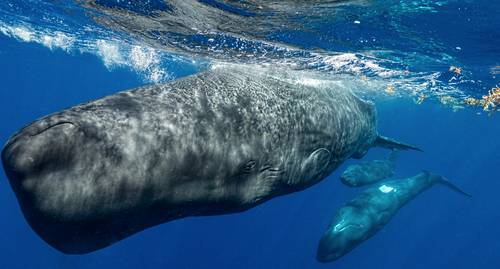Sperm whales have long been known for their unique communication system, using clicks to communicate with one another. But it wasn’t until a recent study published in the journal Nature Communications that scientists were able to gain a better understanding of the basics of this system.
The study analyzed over 8,700 fragments of sperm whale clicks, known as codas, and found four basic elements that make up what scientists believe is a phonetic alphabet used by these animals to construct the rough equivalent of words and phrases. The researchers also discovered that whales are highly social mammals and use echolocation to track their prey.
Scientists at the Cetacean Translation Initiative (CETI) have been working on translating sperm whale communication for decades, and this new research has given them hope that they may be on the brink of deciphering this complex language. David Gruber, founder and president of CETI, said that “We are beginning to find the first building blocks of whale language.”
Sperm whales have the largest brain of any animal on the planet, weighing just over nine kilos, about six times the size of a human brain on average. They live in matriarchal groups of about 10 individuals and sometimes encounter hundreds or thousands of other whales. They can grow up to 18 meters long and dive almost a thousand meters to hunt squid. They sleep vertically, in groups. Gruber noted that sperm whales appear to have elaborate social bonds and that deciphering their communication systems could reveal parallels with human language and society.
To get enough examples of sperm whale clicks in Dominica, where there is a resident population of about 200 whales, scientists created a giant underwater recording studio with microphones at different depths. The tags on those cetaceans also record what position they are in when they click (e.g., diving, sleeping, breathing at the surface) and whether there are other individuals nearby that they might be communicating with. Jeremy Goldbogen called the new research extraordinary and highlighted its vast implications for how we understand ocean giants.
Sperm whales are classified as vulnerable by the International Union for Conservation of Nature due to centuries-long hunting practices targeting their oil-rich heads











+ There are no comments
Add yours